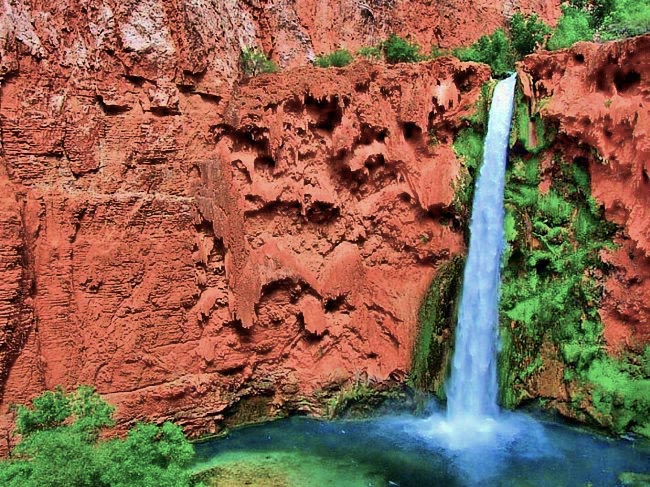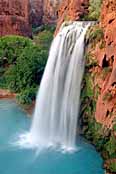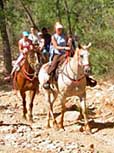|
Scenic USA - Arizona Mooney Falls |

| Photos by Clayton Esterson Clayton Esterson Photography |
The Native Havsuw `Baaja Tribe, commonly called Havasupai, made the  land surrounding Havasu Canyon (Cataract Canyon) as their home for nearly 800 years. At one time the tribe claimed an area of 2000 square miles, but during the late 1800s the Havasupai saw their territory quickly dwindle to 518 acres. Encroachment came from various sources, including the search for precious metals, establishment of the Grand Canyon National Park, and railroad construction, which finally pushed the Havasupai Tribe in action. Decades of court proceedings came to fruition in 1975, when the tribe regained over 250,000 acres of their homeland.
land surrounding Havasu Canyon (Cataract Canyon) as their home for nearly 800 years. At one time the tribe claimed an area of 2000 square miles, but during the late 1800s the Havasupai saw their territory quickly dwindle to 518 acres. Encroachment came from various sources, including the search for precious metals, establishment of the Grand Canyon National Park, and railroad construction, which finally pushed the Havasupai Tribe in action. Decades of court proceedings came to fruition in 1975, when the tribe regained over 250,000 acres of their homeland.
Today, tourism is the Havasupai’s main source of income. Over 12,000 sightseers visit this tribal land and the Village of Supai every year. Here in this dramatic canyonland, the most famous attraction is Havasu Falls. Mooney Falls, the tallest in the canyon and one least affected  by a 2008 flash flood, is fourth in line of five successive waterfalls along Havasu Creek. Over the course of one day, flood waters changed this landscape forever.
by a 2008 flash flood, is fourth in line of five successive waterfalls along Havasu Creek. Over the course of one day, flood waters changed this landscape forever.
The thundering Mooney Falls, named for D.W. Mooney (who lost his life climbing the falls), can be viewed from the canyon floor after an arduous decent using chains, ladders, and bolts down a 200-feet cliff. People often cite their trek in and out of the canyon as one of the best hikes in the Grand Canyon area. Experiences of the 10 mile trip into the Supai Village from the Hualapai Hilltop are quoted in varying degrees of difficulty because it may be accessed on foot, horseback or by helicopter !
Area Map

|
Other Area Attractions |
|
Copyright © 2021 Benjamin Prepelka
All Rights Reserved
